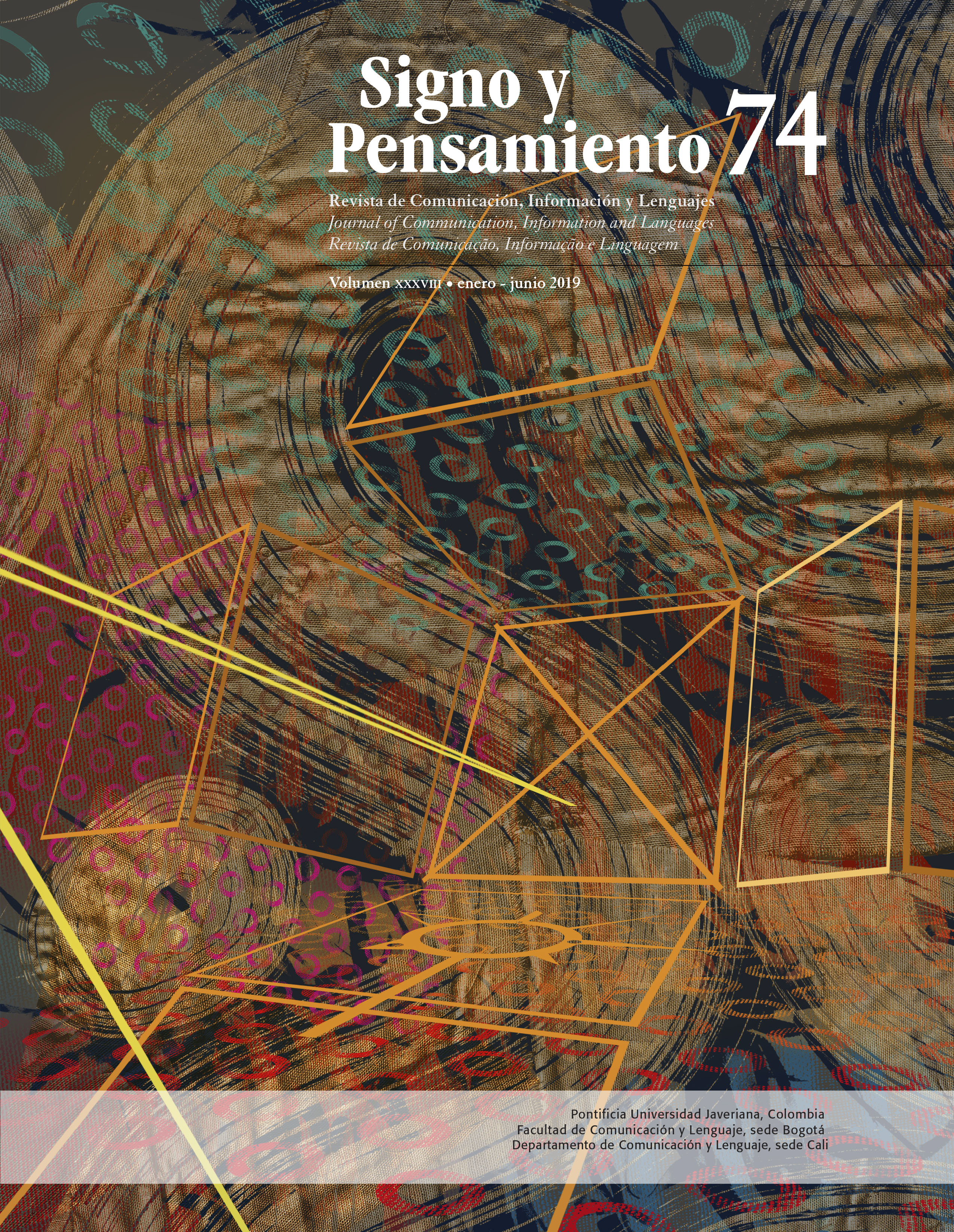Abstract
The purpose in this article is to analyze a growing modernization and adaptation of the American model to the presidential campaigns in Colombia from 1994 up to the campaigns in 2014. Any electoral process has some particular characteristics evincing the impact of the country’s political system on both the internal and external organization of the electoral campaigns. These are structured based on the exploitation of professionalization techniques or factors aiming to gain the highest numbers of voters.
To understand this phenomenon, the professionalization level of the presidential campaigns in Colombia will be measured by establishing some analysis categories allowing describing and comparing both the development and evolution of the techniques used in each campaign. All this would enable to compare the professionalization levels.
Freidenberg, F. (2010). Campañas Electorales y Democracia, Salamanca: Documento en elaboración. Universidad de Salamanca.
Freidenberg, F. & Levitsky, S. (2007). Organización Informal de los Partidos en América Latina. Desarrollo Económico, 46(184), 539 - 546.
Gibson, R. & Römmele, A. (2001). Changing Campaing Communication. A party-centered theory of professionalized campaigning. The Harvard International Journal of Press/Politics, 6(4), 31 - 43.
Gibson, R. & Römmele, A. (2009). Measuring the professionalization of political campaigning. Party Politics, 15(3), 265-293.
Holtz-Bacha, C. (2002). Campañas electorales en Alemania. En F. Priess (Ed.), Relación entre política y medios. Propuestas alemanas en una perspectiva comparada (pp. 207–229). Buenos Aires, Argentina: Temas Grupo Editorial.
Holtz-Bacha, C. (2003). Comunicación Política: Entre la privatización y la espectacularización. Diálogo Político, 1, 137-154.
Kavanagh, D. (2004). Democracia partidaria y marketing político: ¿Sin lugar para aficionados? Diálogo político, 21(1), 33-45.
Maarek, P. (2009). Marketing Político y Comunicación. Claves para una buena información política (2 ed.). Barcelona: Paidós Ibérica.
Mancini, P. (1995). Americanización y modernización. Breve historia de la campaña electoral. En A. Muñoz-Alonso & J. I. Rospir (Eds.), Comunicación política (pp. 141 - 168). Madrid, España: Editorial Universitas.
Mancini, P. (1999). New frontiers in political professionalism. Political communication, 16(3), 231 - 245.
Múnera, P. A. & Sánchez, U. H. (2003). Comunicación Empresarial. Una mirada corporativa. Medellín: Colección Hermes 5.
Norris, P. (2001). ¿Un círculo virtuoso? El impacto de las comunicaciones políticas en las democracias post-industriales. Revista Española de Ciencia Política, 4, 7 - 33.
Norris, P. (2004). The evolution of election campaigns: Eroding political engagement? Recuperado de https://pdfs.semanticscholar.org/6cef/9051c8815bfe29c590df15b4d6469d0ce11b.pdf
Orejuela, S. (2006). Proceso de Globalización a la profesionalización. Revista de Comunicación, 5, 55 - 87.
Plasser, F. & Plasser, G. (2002). La Campaña Global: Los nuevos gurúes del Marketing Político en acción. Buenos Aires: Temas.
Ramírez, A. (2007). La Americanización de las campañas locales en Colombia: El caso del Departamento del Tolima. San José de Costa Rica.
Restrepo-Echavarría, N. J. (2015). La profesionalización de las campañas electorales: las elecciones presidenciales de Colombia 2010. Revista Española de Ciencia Política, 38, 85 - 114.
Restrepo-Echavarría, N. J., Rodríguez-Díaz, R., & Castromil, A. R. (2018). Proposal of an indicator to measure the professionalization of election campaigns: The case of Colombia. El profesional de la información, 27(2), 289-299.
Rocha, F. (2007). La profesionalización de las campañas electorales en Brasil (1989 - 2006). Salamanca: Universidad de Salamanca.
Rospir, J. (1999). La globalización de las campañas electorales. En A. Muñoz-Alonso & J. Rospir (Eds.), Democracia mediática y campañas electorales (pp. 55–88). Madrid, España: Ariel.
Swanson, D. & Mancini, P. (1996). Politics, Media and Modern Democracy: An International Study of Innovations in Electoral Campaigning and their Consequences. United States: Praeger.
This journal is registered under a Creative Commons Attribution 4.0 International Public License. Thus, this work may be reproduced, distributed, and publicly shared in digital format, as long as the names of the authors and Pontificia Universidad Javeriana are acknowledged. Others are allowed to quote, adapt, transform, auto-archive, republish, and create based on this material, for any purpose (even commercial ones), provided the authorship is duly acknowledged, a link to the original work is provided, and it is specified if changes have been made. Pontificia Universidad Javeriana does not hold the rights of published works and the authors are solely responsible for the contents of their works; they keep the moral, intellectual, privacy, and publicity rights.
Approving the intervention of the work (review, copy-editing, translation, layout) and the following outreach, are granted through an use license and not through an assignment of rights. This means the journal and Pontificia Universidad Javeriana cannot be held responsible for any ethical malpractice by the authors. As a consequence of the protection granted by the use license, the journal is not required to publish recantations or modify information already published, unless the errata stems from the editorial management process. Publishing contents in this journal does not generate royalties for contributors.



